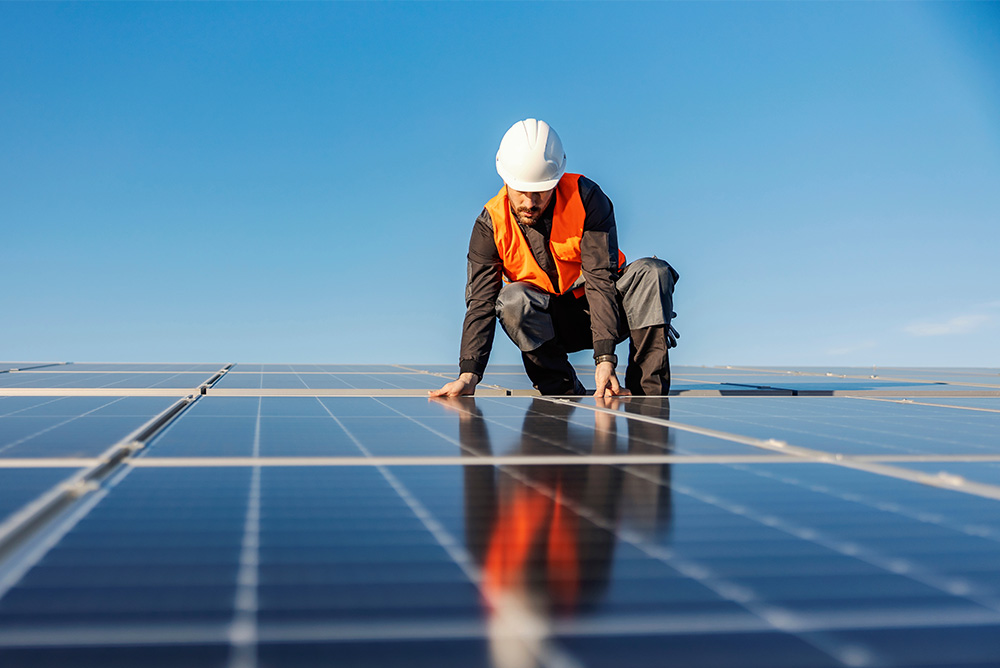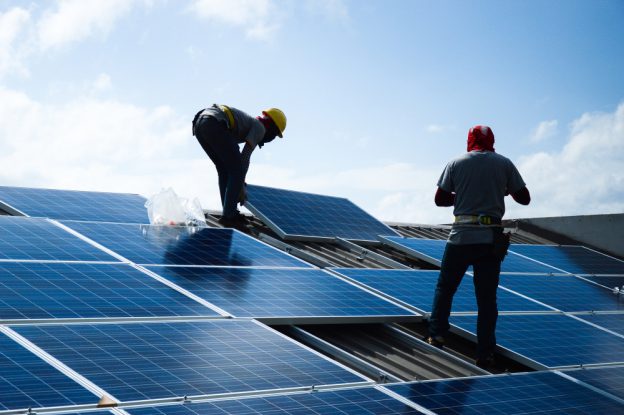Solar Photovoltaic Systems: Using the Power of the Sun for Your Home
Solar Photovoltaic Systems: Using the Power of the Sun for Your Home
Blog Article
Just How to Select the Right Solar Energy Installment for Your Energy Requirements
Picking an appropriate solar power installment requires a systematic approach that begins with a clear understanding of your power intake patterns and anticipated future needs. Factors such as the type of solar innovation, installment expenses, and offered rewards play essential roles in making a notified choice.
Assess Your Energy Demands
Assessing your energy needs is an essential initial step in the solar power setup procedure. Understanding your current and future energy intake will guide the style of an efficient solar system customized to your requirements.
Take into consideration seasonal variations in power intake, as specific months might require more power due to heating or cooling needs. Additionally, assess any kind of planned changes in lifestyle or property, such as the purchase of electrical vehicles or home expansions, which might increase your power needs in the future.
As soon as you have a detailed understanding of your energy intake, you can figure out the proper solar capacity required to fulfill those demands. This analysis not just helps in sizing the solar installation but likewise notifies decisions concerning power storage remedies and prospective grid connection demands. solar photovoltaic. Inevitably, accurately determining your power needs makes sure that your solar power system operates efficiently, delivering the advantages of renewable energy abreast with your intake patterns

Evaluate Solar Modern Technology Options
When taking into consideration a solar power installation, it is important to evaluate the various solar modern technology choices available to guarantee the system lines up with your power needs and budget plan. The primary technologies consist of monocrystalline, polycrystalline, and thin-film photovoltaic panels, each offering distinctive advantages and drawbacks.
Monocrystalline panels are understood for their high effectiveness and performance in minimal area, making them suitable for residential setups with less roofing area. They have a tendency to be more costly. Polycrystalline panels, while slightly much less effective, are generally extra budget friendly and can be an excellent option for bigger setups where area is not a restriction. Thin-film solar panels are light-weight and flexible, optimal for unconventional surface areas, yet they generally have reduced performance and require even more room to generate the same power output.
Along with panel kinds, consider solar inverters, which convert the straight current created by the panels into alternating existing for home use. String inverters, microinverters, and power optimizers each have special benefits that can impact system efficiency. Examining these options will certainly assist you make an informed choice that satisfies your energy needs successfully.
Take Into Consideration Installation Prices
Recognizing installment prices is important for any individual taking into consideration a solar energy system. These costs can differ considerably based on numerous elements, including system dimension, sort of panels, and setup intricacy. A typical domestic solar setup might vary from $15,000 to $30,000 before rewards, which can be a significant ahead of time investment.
To properly examine installment costs, it is necessary to get detailed quotes from numerous solar providers. These quotes should break down the costs of devices, labor, permits, and any additional accessories required for the installation. Pay close focus to the top quality of products being offered, as higher-quality panels and inverters can lead to better effectiveness and long life, possibly balancing out higher preliminary costs.
In addition, take into consideration the long-lasting implications of setup expenses. A cheaper installment could save cash upfront yet can bring about higher upkeep expenses or decreased energy production with time. It is likewise a good idea to examine funding choices, such as solar finances or leases, Go Here which can influence your total monetary dedication.
Research Citizen Rewards
Checking out local incentives can dramatically influence the general cost of a solar power setup. Many areas provide a selection of financial motivations targeted at advertising renewable energy use, making solar power a lot more easily accessible and economical for property owners and companies alike.
These incentives might include federal tax debts, state rebates, and regional energy company programs that give money rewards or web metering choices. For circumstances, the Federal Investment Tax Credit Report (ITC) permits you to deduct a substantial portion of your solar setup expenses from your government tax obligations. State-specific incentives can further boost these cost savings, commonly in the form of direct cash money discounts or tax credit histories.
Furthermore, some neighborhood governments may provide real estate tax exemptions for solar setups, guaranteeing that your investment does not increase your property tax obligation obligation. Researching these rewards can discover substantial cost savings, which can influence your decision on the size and type of solar system to mount.

Choose a Trusted Installer
Choosing a trustworthy installer is crucial to ensuring the success and durability of your solar energy system. The installment look at this site process substantially affects the efficiency and efficiency of your photovoltaic panels, making it essential to select a specialist with a tried and tested record. Begin by looking into regional installers through online testimonials and endorsements. Sites such as the Better Company Bureau can give understanding right into consumer contentment and solution dependability.
Following, confirm the installer's qualifications, consisting of licenses, certifications, and insurance policy. A trustworthy installer needs to hold certifications from acknowledged companies, such as the North American Board of Licensed Energy Professionals (NABCEP), indicating a high level of expertise. Additionally, ask about the installer's experience with similar tasks, specifically in your area, as neighborhood climate and regulations can influence installation methods.
Request numerous quotes and compare them not just on price however additionally on the top quality of equipment and service warranties offered. A trustworthy installer should provide transparent details regarding their product or services, assisting you make a notified decision. By investing time in picking a credible installer, you will certainly boost the total effectiveness and longevity of your solar energy system.
Conclusion
In final thought, choosing the appropriate solar check out here energy setup requires a complete analysis of energy requirements, an understanding of offered solar modern technologies, and a cautious consideration of installment costs. Checking out neighborhood motivations can boost monetary advantages, while choosing a credible installer makes certain top quality handiwork and integrity. solar photovoltaic. By carefully analyzing these elements, individuals can achieve an optimum solar remedy that meets both existing and future energy needs, inevitably adding to sustainable energy methods and cost financial savings in time
Report this page